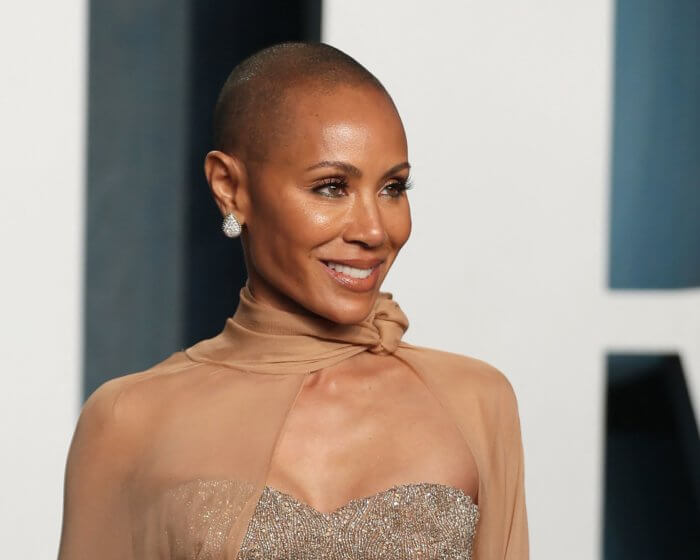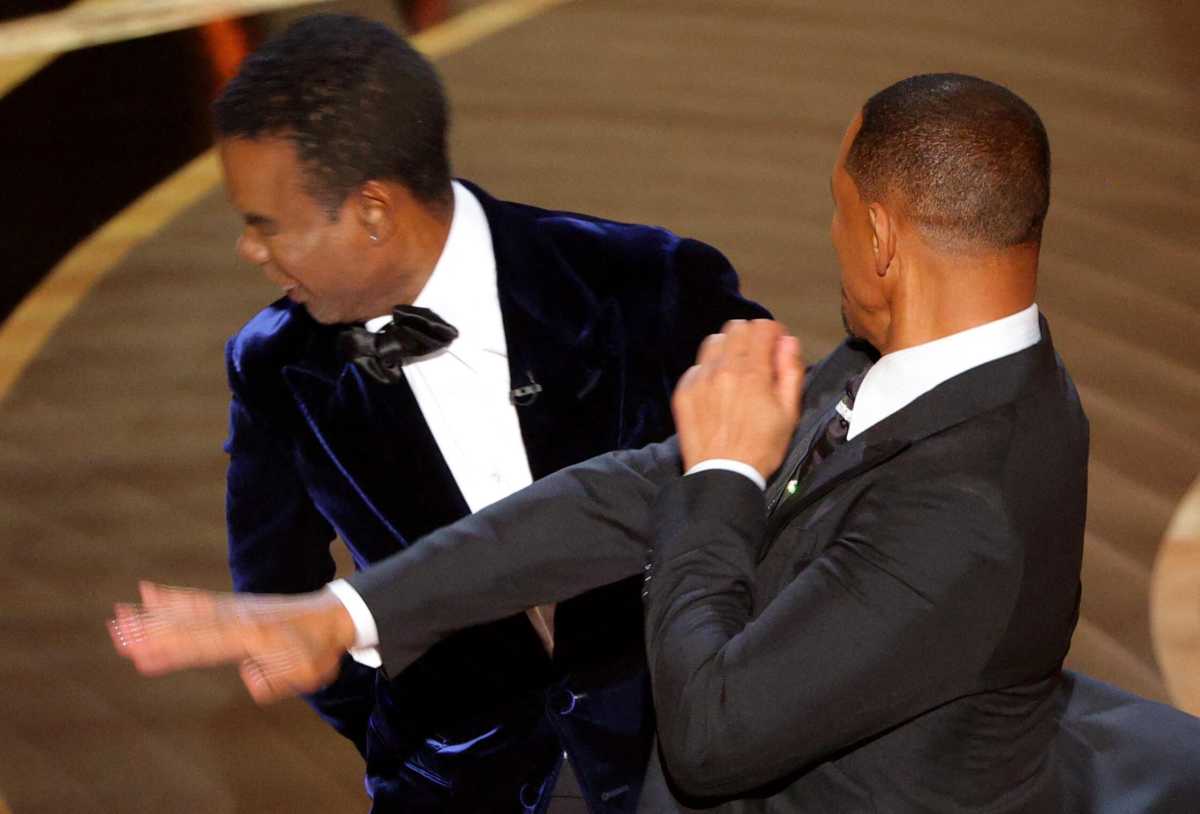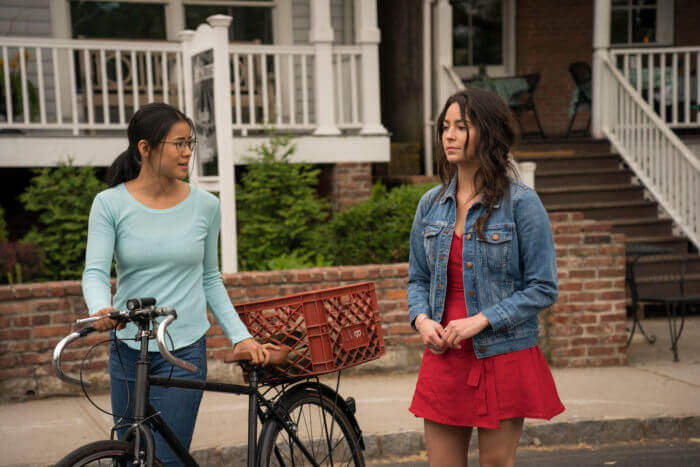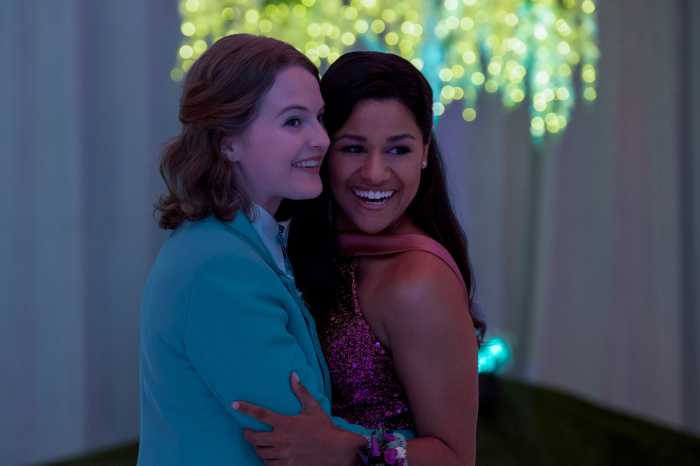It took a second or two to compute, but what brought Will Smith to his feet and his palm to Chris Rock’s cheek was the sudden realization, “Hey, he just called my wife a butch!” Off he strode to defend her honor. From that instant forward, observers have framed Smith’s act as chivalry, toxic masculinity, domestic-violence PTSD, and more. Call it what you will, it all boils down to lesbophobia. That slap was as much a defense of his wife’s heterosexuality as her dignity. In fact, the latter hinged on the former.
Let’s go to the tape, shall we?
The joke that unleashed Smith’s fury addressed his wife’s, Jada Pinkett Smith’s, shorn head. “’G.I. Jane 2,’ I can’t wait to see it, aight,” quipped Rock, referring to the 1997 Hollywood blockbuster “G.I. Jane,” a box-off flop, starring Demi Moore as Jordan O’Neill, the fictitious first woman to go through the grueling Navy Seal special-forces training. In an emotionally stirring Oscar Night postmortem, New York Times critic-at-large Wesley Morris (who is African American and openly gay) described G.I. Jane as “a 25-year-old work of crypto-feminist trash.” I don’t disagree with him. The film’s crowning moment comes when, in a display of gender defiance, O’Neill shaves her head clean, inciting the media to dub her “G.I. Jane.” This is the point in the film’s narrative — the shaved head aesthetic — that people have zoomed in on for insight into Smith’s ire over Rock’s joke.
But, forget not that further along in the movie, when O’Neill frustrates all expectations of failing in the all-male company, a strategy is concocted to discredit her as being a lesbian, “fraternizing with women” in violation of the US military’s then policy of “Don’t Ask, Don’t Tell.”
Predating both the movie’s release and its historical time frame, the moniker “G.I. Jane” has long been bound up with anxieties, connotations, and stereotypes of lesbian identity, as historian Leisa Meyer explains in her 1996 book, “Creating G.I. Jane: Sexuality and Power in the Women’s Army Corps during World War II.”
The strict definition of “lesbophobia” is a fear of lesbians. But, like its relative, “homophobia,” it encompasses a much wider range of attitudes and perceptions regarding women’s embodiment, and intimate relationships between women. A reticence to even speak the word “lesbian” — in preference of the less hard-hitting, dare I say risky, “queer” or “sexually fluid” — can be a self-preservationist reaction to lesbophobia.
With that groundwork laid, you’ve heard the phrase, “gay for pay,” haven’t you? Well, for quite a while now, the Smiths, progeny included — son Jaden and daughter Willow, stunners for both their good looks and their precociousness — have been doing “gay for play.” They put out messages they think scintillatingly raise the question, “Are we or aren’t we?” only to answer it with, “Wouldn’t you like to know?” Hair politics — the shaved head aesthetic and other genderbending hairstyle choices — have been woven into that chat.
On the surface, it looks racy and ribald, like they’re in the fast lane. But, they’re actually in the bus shelter. They’re not getting on the bus marked “lesbian” or “gay.” And, they don’t have to. So, why the interminable innuendo from them to the contrary?

In one über-cringeworthy episode of “Red Table Talk,” the Facebook Watch chat show Pinkett Smith hosts with Willow and her own mother, Adrienne Banfield-Norris, the Smith women conversed “candidly” about their sexual attractions (or not; it’s transparently non-transparent) to other women. The celebrity guest was actress Niecy Nash, accompanied by her new wife, Jessica Betts. The Smiths overblew their enthusiasm for the couple with shrill affirmations and performative finger snaps. “Niecy, I hope you don’t mind me saying,” Pinkett Smith said before directing a compliment to Betts: “You are a cutie, I’ll give you that, okay-ay-ay!!” Snap, snap, snap. Betts, meanwhile, sat confident in her handsome butchness, sporting a prototypical military outfit in army green with a cap partially covering her close-cropped hair. Before that, Willow, channeling her inner Barbara Walters, had posed the most substantive question of the episode to femme-presenting Nash, who’d previously married and reproduced with two cisgender men: “What do you say to people who say you’re a lesbian?”
Black lesbians who have chosen the shaved head or close-cropped aesthetic are talking back, implicitly, explicitly or somewhere in-between, to both patriarchy and white supremacy. In the high-visibility entertainment industry, hotbeds of both, the style has been adopted and personalized by a handful of lesbian or queer creators, among them Grammy-winning singer Meshell Ndegeocello, Skin from the British rock band Skunk Anansie, and Emmy-winning actor-producer-screenwriter Lena Waithe, whom I spotted when the camera panned the audience on Oscar Night seated beside her frequent companion, Grammy and Tony winner and Oscar Best Actress nominee Cynthia Erivo. None of these women was doling out slaps on Oscar Night to people who have dissed them, sometimes to their face – sadly.
After Smith hit Rock, he returned to his seat like a king to his throne, from which he bellowed, “Keep my wife’s name out your fucking mouth!” Then, he bellowed it a second time, louder and more deliberately enunciated.
Wait, I thought to myself. Was it not he, and she herself, who’d put her name in Rock’s mouth, put both their names in all our mouths, in the first place? Mr. and Mrs. Smith have persisted in oversharing titillating detail after detail of their married life, of Jada’s extramarital affair(s) and queer desire, of Will’s de facto cuckolding. Now that the serpent they’ve enjoyed charming has slithered away from them, they’re vexed.
Rock has come under fire for insensitivity to Pinkett Smith’s medical condition of alopecia. Rock insists he had no such awareness, and I’m inclined to believe him because neither had I. Not everyone, Mr. and Mrs. Smith, devotes their every waking hour to following your multiplatform musings. There is genocide and war on the other side of your mirror.
The irony of the whole situation is that like so many firsts, honors, and tributes bestowed that night, the slap smacked lesbian and queer-identifying women of color who were finally basking in Oscar’s limelight back to the shadowy sidelines. Comedian Wanda Sykes, an out lesbian, was one of the evening’s trio of female hosts; Ariana Debose, who in her acceptance speech said, “You see an openly queer woman of color, an Afro-Latina,” won for Best Supporting Actress. Both were eclipsed by the spectacle of straight male aggression.
As I watched Will Smith blubber through his “Best Actor” acceptance speech, something about the mercurialness of the emotions we’d witnessed him display reminded me of an earlier Oscar-winning film, “American Beauty.” Not a mere hour earlier, when Smith heard Rock utter the name “G.I. Jane,” heard the audience laugh in response, perhaps saw bald objection in his wife’s facial expression, his mental calculation didn’t stop at, “Hey, he just called my wife a butch! ” It went on to add, “What does that say about me?”
Nicholas Boston, Ph.D., is Associate Professor of Media Studies at Lehman College of the City University of New York (CUNY). He is the author, most recently, of “‘I would like to be a spoiled, rich, white girl’: Trans Biography, Naming and the Entombed Italian American Subjectivity of Venus Xtravaganza” in Queering Italian American Media, forthcoming from Palgrave Macmillan.



































